Viliam Čánky
09-02-1933
Birthday
Aquarius
Zodiac Sign
-
Genres
0
Total Films
Also known as (male)
Place of Birth
09-02-1933
Birthday
Aquarius
Zodiac Sign
-
Genres
0
Total Films
-
Also Known As (male)
-
Place of Birth
09-02-1933
Birthday
Aquarius
Zodiac Sign
-
Genres
0
Total Films
Also known as (male)
Place of Birth
09-02-1933
Birthday
Aquarius
Zodiac Sign
-
Genres
0
Total Films
-
Also Known As (male)
-
Place of Birth
actor
0 Works
producer
44 Works
director
45 Works
writer
0 Works
other
1 Works

The Fountain for Suzanne
The second full-length film of director Dusan Rapos. It was based on Eleonora Gasparova's novel of the same title. The director tells a story about the life and troubles of young people living in the city. The teenagers have to face real life, make their first major decisions, and learn that romance sometimes brings disappointment. The original Slovak music composed for the film by Vaso Patejdl contributed greatly to the film's atmosphere. It helped to make The Fountain for Suzanne a legendary picture of Slovak cinematography at the time.Year:
1986

O sláve a tráve
Year:
1985

The False Prince
The Sultan awaits the arrival of his son, Prince Omar, who has brought up in a distant land. The master tailor and his assistances are making clothes for the prince. Labakan, the most gifted of his assistances, craves to be a Sovereign's heir so he steals the princely garments snd poses as the Sultan's son.Year:
1985
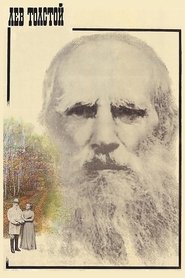
Lev Tolstoy
The film consists of two parts: “Insomnia” and “Departure”. We shall meet Lev Tolstoy in the final years of his life at Yasnaya Polyana. We shall see him surrounded by his family, friends, acquaintances and absolute strangers who were coming to the great man and artist from all over the world. We shall hear “the voice of his thoughts”. In his sleepless nights, we shall follow his memory of the happy youthful years and the crucial, hard ones. We shall witness Tolstoy’s tragic departure from Yasnaya Polyana and his death at an obscure little station of Astapovo.Year:
1984

Jays in the Head
A story of a small-town boy growing up in love and despair and family troubles that make him take on a critical attitude towards his surroundings. Mato does not fulfill his father's wish for devoting his free time to playing soccer. Mato enjoys fishing with his friend Robo much more. He dreams of his schoolmate Terka and of an adventurous run-away from home.Year:
1984
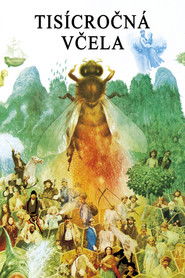
The Millennial Bee
A family saga taking place mostly in a small Slovak village over a period of thirty years (1887–1917). The first part captures the life of Martin Pichandu in the development of his craft, masonry; in the second part, his son is center stage living in a period of socio-political crisis, which ultimately results in the first World War. After originally airing on Czechoslovakian television in 1983 as a four-part 226-minute mini-series, this production received a 163-minute theatrical release in 1984.Year:
1983
Čarbanice
Year:
1982

The Death of Mr Goluza
Traveling salesman in a small town before WW2 makes a solemn promise to kill himself. Later he finds that the local people took him very seriously.Year:
1982
Kosenie Jastrabej lúky
Year:
1982
Hodiny
Year:
1981
Katera
Year:
1981
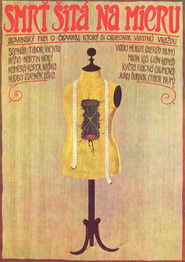
Smrť šitá na mieru
Year:
1980
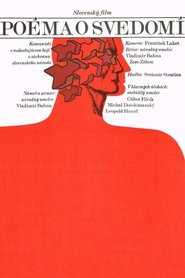
Poéma o svedomí
Year:
1979
Pustý dvor
Year:
1979
Uzlíky nádeje
Social ballad. Three short stories – "Uzlík tepla", "Chlapec a pánboh" and "Rubári" – depict three different human stories, the common denominator of which is suffering and existential threat.Year:
1979

Stratená dolina
Year:
1977
Hanča, Janko a Lucia
Year:
1977
Sebechlebskí hudci
Year:
1975
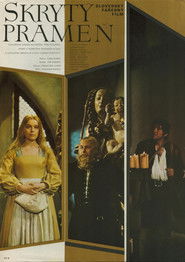
Skrytý prameň
Year:
1974
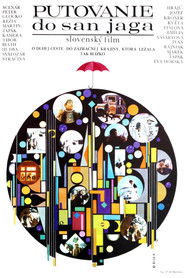
Putovanie do San Jaga
Year:
1973
The Bride of the Mountains
A balladic story situated in a Slovak mountain region before the 2nd World War. A young man returns to his native village after many years. There he meets Zuna, a mysterious girl of the forest, who opens his eyes to the charming nature to perceive hidden corners of the world and of his own soul.Year:
1972
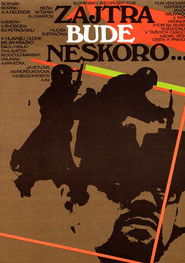
Zajtra bude neskoro
1943. Captain Ian Nalepke, Chief of Staff of the Slovak regiment, bearing protection of military facilities in the small town of Belarus contacts the partisansand passes to them the obtained information about upcoming operations of the German forces.Year:
1972
Rysavá jalovica
Year:
1971
Pán si neželal nič
Year:
1971
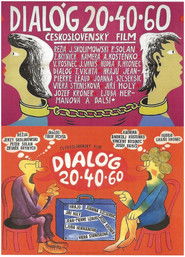
Dialogue 20-40-60
"Using the same, three times repeating dialogue – dramatic conversation between man and woman – Jerzy Skolimowski from Poland, Slovak director Peter Solan and Czech director Zbynìk Brynych shot three different stories. The result was an extraordinary experiment in the world cinema, which we can call an insight in the relationships of men and women of different age groups, an analysis of love and marriage of those who are at the beginning, in the middle or going towards the end of their life."Year:
1968
Rok na dedine
Year:
1968
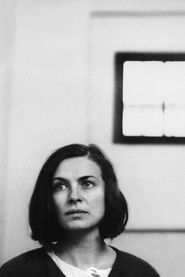
Be Sure to Behave
A woman prisoner is harshly incarcerated and suddenly released.Year:
1968
Môj vienok zelený
Year:
1968
Malka
Year:
1968
Lúčka, na ktorej spáva vietor
Year:
1968
Roztrhla sa hudáčkovi struna
Year:
1967
Sedem svedkov
Year:
1967
Jeden deň pre starú paniu
Year:
1966
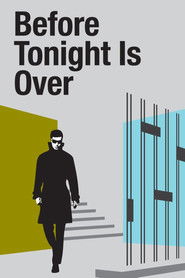
Before Tonight Is Over
Two female clerks using up their savings to enjoy a few days of carefree life, two plumbers looking for an erotic adventure, a building contractor determined to drink away all wages of his workers and a former major who became an alcoholic due to political persecution — these people meet in a ski resort bar somewhere in the High Tatras. During one night they gradually reveal their unfulfilled dreams, illusions and disappointments of ”average" people of those times.Year:
1966
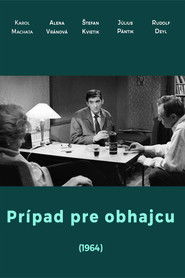
Prípad pre obhajcu
Year:
1964
Slnečný kúpeľ
Year:
1964
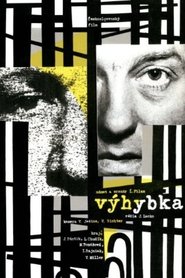
Výhybka
A story of two old friends, who after ten years - one as the deputy director and the other as the chairman of the party organization - meet on a large construction site.Year:
1963
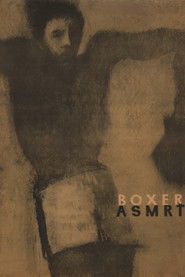
The Boxer and Death
Concentration camp commander Kraft finds out that prisoner Kominek is a former professional boxer. Overnight, the prisoner is made Kraft's exercise partner and unwillingly rises to a privileged position at the camp. His anger over the death of his friend and co-prisoner leads to open revolt. The film brings a new view of human degradation during fascism by a tragic story of one man whose only chance for survival is to accept the rules of an unequal game.Year:
1963
Geľo Sebechlebský
Year:
1963
Vždy možno začať
Year:
1962
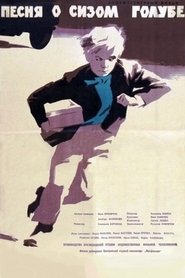
The Song of the Grey Pigeon
An unusual children's film set during World War II in Czechoslovakia, this compelling drama unfolds five different segments that present the war through the eyes of three youngsters. The three have a series of adventures which include saving a soldier from being captured by the Germans, helping out the resistance fighters, and meeting up with a young Russian woman trained in guerrilla warfare. As they learn more about life and danger, various circumstances constantly recall the reality of war itself. The title comes from a wounded pigeon under the care of one of the youngsters.Year:
1961
Muž ktorý sa nevrátil
Year:
1959
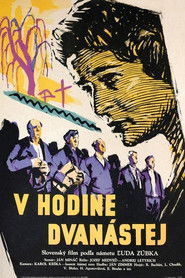
V hodine dvanástej
Year:
1959
Prvák
Year:
1959